Administering On-Road First Aid: What to Remember
Did you know that India records about five lakh road accidents every year? Of these, 1.5 lakh cases end in fatality, as per the Union Minister for road transport and highways. This number, though disturbing, could be attributed to the attitude and behaviours of most drivers in India or the country’s overall ‘Cartesy’ as we, at Ford, call it. Don’t believe it? Here are some dismaying responses to the 2019 Ford Cartesy survey.
- 51% of people were unaware that seat belts serve as the first line of defence
- 33% of people were okay with underage driving
- 22% of respondents confessed to using phones when driving.
But one of the most shocking statistics from the report is perhaps that 37% of road users don’t care about their own safety nor that of others. In fact, 41% of drivers confessed that they would be reluctant to take an accident victim to the hospital. What makes these numbers disappointing is the fact that administering on-road first aid and or being able to get medical assistance in the crucial first-hour of the accident, called the ‘Golden Hour’, can often be a deciding factor in a life and death situation.
For this reason, the second Saturday of September is observed as World First Aid Day annually. The aim is to raise awareness about the importance of first aid in everyday and critical situations. So, this World First Aid Day – September 12th, learn the crucial dos and don’ts of helping others and yourself in case of a road accident.
Check For Injuries
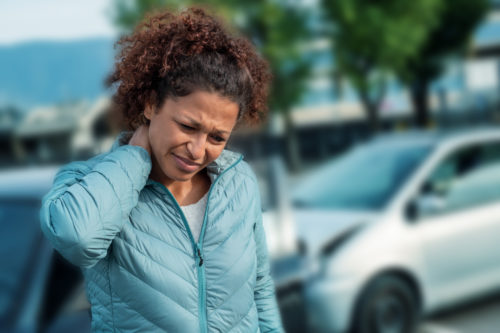
You can’t help others unless you are okay yourself. A lot of times when people experience traumatic accidents, the shock can be disorienting, and you may not even realise that you are hurt. So, if you are a road accident victim, don’t react immediately, give yourself a few minutes to make sense of the situation and check yourself for any injuries. Try to move your hands and legs slowly, check your breathing and get up to move if you feel okay. Once you are sure that you are alright, you can turn your attention to others.
Assist Co-Passengers
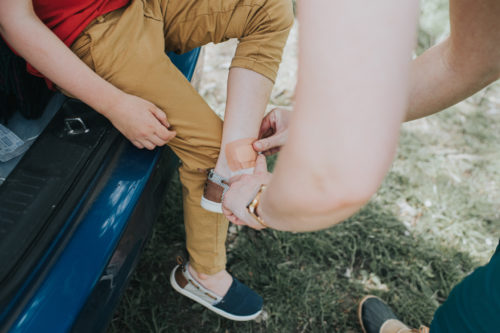
When you’ve ensured that you’re alright, attend to your co-passengers. If they have any injuries, treat it with a first aid kit until emergency services arrive at the scene or you can take them to the hospital. Do note that if there are multiple people in the car, first check on those who are quiet. Experts say that people who can scream or talk are able to breathe so that they can be treated a little later. But those who are quiet may have breathing difficulties or serious injuries. And if everyone is conscious and responding, check if they can understand what’s happening – this could indicate whether they have suffered a head injury or not.
Call for Help
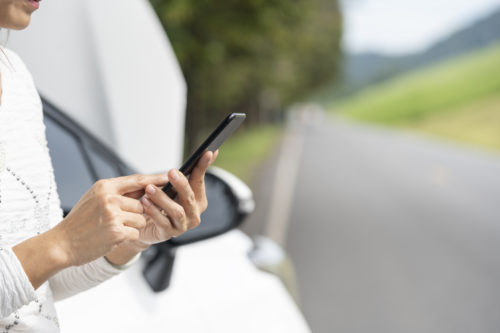
If it’s a minor accident, then calling for help may not be necessary. However, if the accident is more serious and any passenger is injured, calling for assistance is essential. Ford’s SYNC infotainment system has an inbuilt, potentially lifesaving technology Emergency Assistance. Offered with Ford EcoSport S and Ford Endeavour, this technology automatically calls emergency services via your paired mobile phone. Authorities will be notified about the accident, and your GPS location will be sent. Once the operator notes the information down, the Emergency Assistance will leave the phone line open so that you can directly communicate with them.
Check On Others
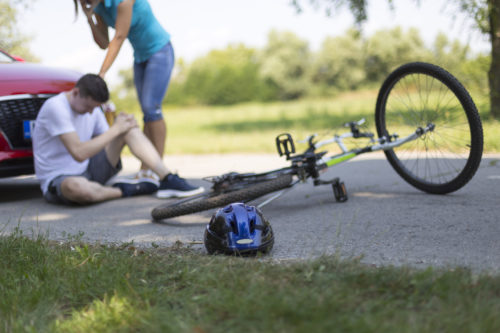
In case the accident involves another vehicle or a pedestrian, once you’ve called for help and an ambulance is on the way, please make it a point to get out of your car and assist other victims. Remember, check if they are conscious and have a pulse, or the extent of their injuries if they have any. If the injured person is unconscious or there is an immediate danger to their life, you may have to attempt removing the person from the vehicle. However, this must be done only if necessary, since it can make the situation worse if not done carefully. Assisting others is critical for us to build a society that thrives on mutual cooperation.
Last year, as part of our Discover More campaign, Ford encouraged drivers to help fellow road users through a pertinent short ad film. The aim of the film wasn’t to promote a vehicle or sell more cars, but to encourage people to lead by example.
Treat Open Wounds
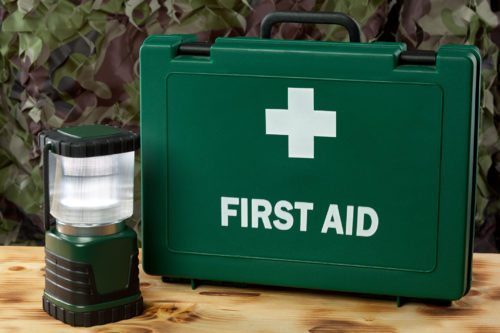
Having a basic first-aid kit in your car at all times is an absolute must, whether you’re going on a road trip or simply during daily commutes – because accidents don’t check your schedule before occurring. This first-aid kit should have basic items such as bandages, gauze, pads, antiseptic cream and adhesive tape – all of which can help treat minor injuries. If there are any open wounds, you’ll first have to control the bleeding by applying pressure to the area using a sterile bandage or cloth. This helpful article can teach you more about putting together a suitable first-aid car kit.
Use Roadside Assistance
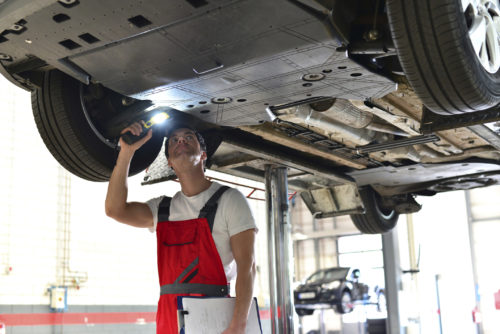
If there hasn’t been any serious injury to anyone, but your car is damaged or immobilised, you can dial Ford’s 24-hour hotline number 1800-209-7400 or 1800-103-7400 to avail Ford’s Roadside Assistance service. A Ford technician will arrive at the location and fix the vehicle on the spot in case of minor repairs. On the other hand, if your car has suffered extensive damage, Ford Roadside Assistance service will organise to send a recovery vehicle to recover your vehicle to the nearest authorised Ford dealer.
Avoid Giving Food to the Injured
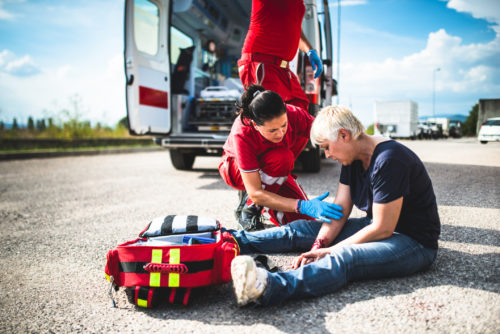
In the event of a more serious accident, after calling for help and taking basic on-road first aid steps, it is crucial to remember that anyone involved in the accident must avoid eating or drinking anything right away. This is a precautionary step in case one of you has to undergo an operation later. Sometimes, an accident victim may look okay on the outside, but there could be internal bleeding or damage that will only show up on scans or X-rays. Hence, going to the hospital and getting checked-up is essential after an accident, even if you think everyone seems okay. Another reason to not eat or drink anything is to avoid an injured person getting choked. And while you wait for ambulance services, ensure you and other victims remain warm as the body temperature may drop due to shock.
You may be the most cautious driver on the road, but accidents are unpredictable and can happen on account of various factors that may not be in your control. So, the only way to deal with an on-road emergency is to be prepared and aware of what to do. So, take time to learn the basics of administering first aid now, because these life skills can save your or someone else’s life.
Subscribe to our newsletter
Subscribe to our newsletter to stay upto date with latest news, offers and much more



